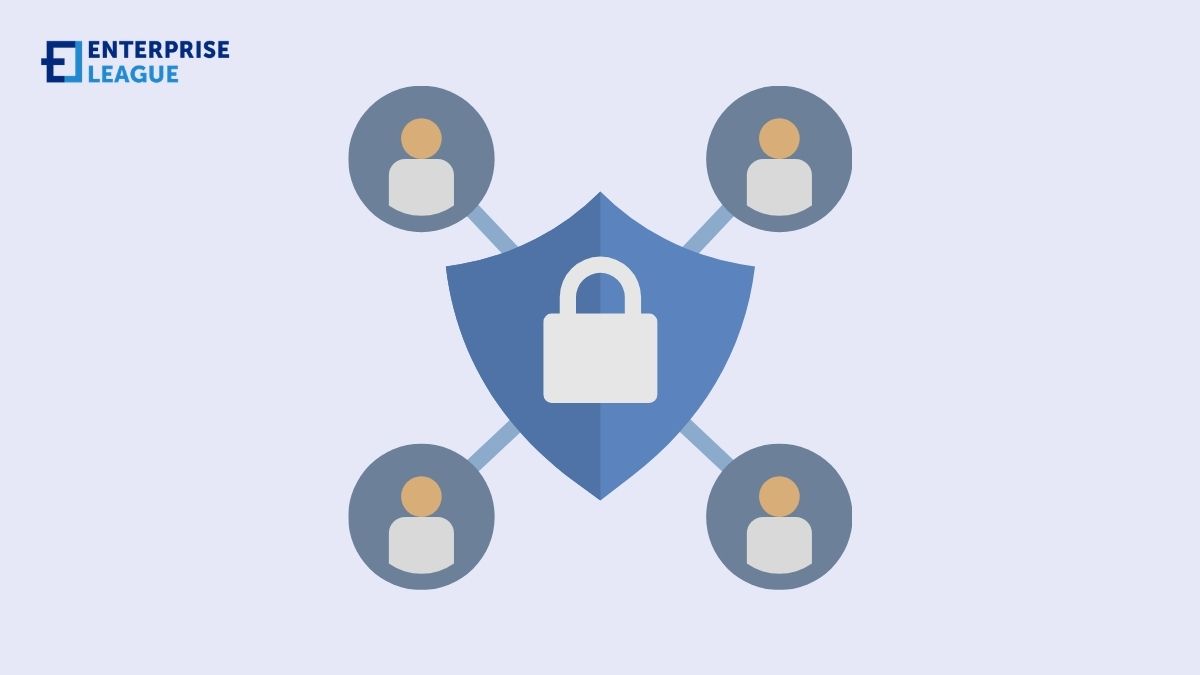In this article, we discuss what consumers’ privacy entails, as well as the benefits and responsibilities that come with keeping your consumers’ data as a business.
The perks of collecting customers data and customers data protection
Before we dive into responsibility and customers’ data protection, let’s first understand what consumers’ data is and the perks you can derive from gathering customers’ data.
The benefits of collecting consumers’ data for your business
Gathering your consumers’ data is crucial, and comes with astounding benefits for your business. Find out the different benefits you gain by gathering your customers’ data below.
Understand your target market
Starting your business without a deep understanding of your target market is starting to fail. Without a clear understanding of who your target audience is, it will be difficult to cater to their needs, engage with them and establish relationships that will lead to sales.
However, with your customers’ data, you can get deep insight into your target audience’s behavior, which influences every decision you make as a business. As a business owner, you are probably not a mind reader. But collecting your consumers’ data makes it easy to read their minds. Using an IP proxy and setting up the IP location to your targeted regions is an option to consider. This can make your manual data collection more accurate and more relevant to your target market, but also easier as it will allow you to bypass any geographical restrictions related to data scraping
You will be able to know how they behave online, what challenges they face as they engage with your services, and you can divert new, creative ways to solve their problems. This helps you grow your business in profound ways because you will connect and engage with your customers in the best way possible, increasing your sales and your bottom line.
Consumers’ data helps you reach your marketing goals
Collecting your consumers’ data is how you reach your marketing goals as a business.
This is because your consumers’ data lets you know how to serve your customers just the way they want. When you provide your consumers with what they want, they will have no reason to go to your competitors.
Consumers’ data gives you an edge over your competitors. Because while your competitors are struggling with attracting and retaining customers, you already know what to do to attract and retain new customers from the customers’ data you’ve gathered. You have the data you need to attract and retain your customers.
Lets you create a customized experience for your customers
In today’s digital marketing world, customers are more in tune with brands that can interact with them on a personalized level. According to research, 80% of customers are likely to buy from a brand that offers personalized experiences.
Creating personalized experiences is how many businesses connect and build relationships with their customers, and the only way to make this happen is through customers’ data. The stats of personalization show that 83% of consumers are willing to share their information to get a more personalized experience from brands.
Consumers’ data gives you insights into what products or services your customers need, then you can provide them with the products and services they need. This helps you stay relevant and helps prevent waste of time and resources producing or creating irrelevant products.
Your consumers’ data also exposes you to your audience’s various interests, which helps you segment your audience according to their interests. This influences the content you create and the type of promotional offers you make for specific audience groups.
With consumers’ data, you can create intimate relationships with your customers, address them with their names when you send them Emails, and create content that helps them solve their problems.
By creating personalized experiences for your customers, your customers feel more in tune with you. They trust you, and they will always look forward to enjoying more personalized experiences with your products and services.
Overall, this increases your sales, retains your customers, and keeps you fulfilled as a business owner.
Most important things about customers data protection
Like we already discussed, collecting your customers’ data goes a long way in growing your business and helping you reach your sales goals. However, as a business owner, it’s your responsibility to keep your consumers’ data safe.
Due to the growing numbers of data breaches among enterprises, consumers are increasingly cautious of who they share their data with. Statistics show that in 2019, over 164.68 million records were exposed.
The awareness of these increasing data breaches has made customers selective of the types of brands they give their information to, and as a result, the brands they do business with.
However, many businesses have used this development as a competitive advantage by ensuring compliance with customers’ data protection and taking other precautions to ensure their data are well safeguarded.
It is based on trust or nothing
Current developments have shown that consumers only share their data with companies they trust. The only way to build trust with your customers for them to share their data with you is to show them you care about their privacy.
One way to ensure customers’ data protection is to keep your discussions private and only share these discussions only when they permit you to do so. For example, the content of your emails with them should only be made accessible to other parties when they permit you to do so.
One other factor to consider when trying to establish trust with your customers is to ensure the information you request is strictly related to the products and services they need. Asking your consumers questions outside the scope of business would raise suspicion and hamper their trust.
Consumers are more likely to share their information with you if you inform them about what you want to use their information for and why it’s relevant to the action they are about to take.
For example, statements like “fill in your email address to get notified about the latest offers” are much more convincing than the generic “input your email address”. Consumers are also more likely to trust organizations that react quickly and transparently to data breach occurrences.
Suppose an incident of a data breach should occur in the company. It’s advisable to openly disclose the development and tell your audience the steps you are taking to rectify the situation.
Conclusion
Customers’ data protection is essential for businesses to understand their customers and attract and engage with their consumers, among other benefits. However, gathering consumers’ data comes with responsibilities, and it’s important to understand these responsibilities to ensure your customers’ data are adequately protected.
More must-read stories from Enterprise League:
- What do successful people sacrifice in order to achieve their dreams.
- The relevance of print marketing and how to make it work for your business.
- Learn how to be a good boss: 12 tips from experts.
- 23 pricing strategies to help you with pricing your products.
- Find out how to set up Google Ads campaigns so that they will bring you big ROI.
Related Articles
Top 20 gaming startups to know (2024)
Let’s take a look at these 20 startups that have the potential to become unicorns one day and make big changes in the gaming industry.
4 powerful techniques to build a strong sense of community
To get you to a place where your company isn’t just place of work, but hub for making connections between colleagues, take a look at the following techniques.
Why web app development is crucial for your business growth
This article will explore the key reasons why web app development is imperative for companies looking to expand their customer base, and competitive edge.
Top 20 gaming startups to know (2024)
Let’s take a look at these 20 startups that have the potential to become unicorns one day and make big changes in the gaming industry.
4 powerful techniques to build a strong sense of community
To get you to a place where your company isn’t just place of work, but hub for making connections between colleagues, take a look at the following techniques.






